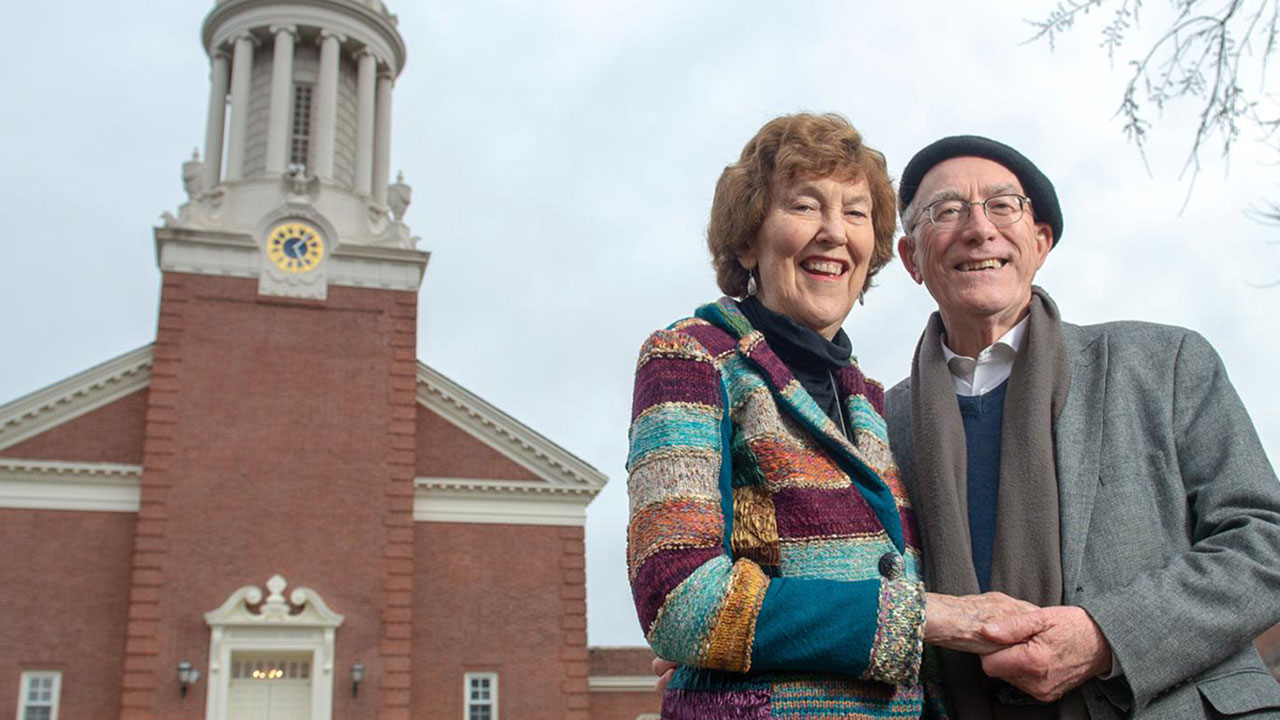
A Field of Study and a Moral Force
After 25 years leading the novel initiative they co-founded, the Yale Forum on Religion and Ecology, CUHF National Council member Mary Evelyn Tucker and her husband John Grim will retire from teaching this spring.
“We don’t see the word retirement as operative” Tucker says. “We like to use ‘refirement.’”
While the duo will stop teaching in the classroom at the end of the spring 2023 semester, they will remain an active and influential voice in the environmental and theological communities through their busy speaking schedule at international conferences and the six Coursera courses on religion and ecology they developed, which have already reached thousands of people. The Forum and its encyclopedic website—which informs academic and religious communities worldwide alongside its monthly e-newsletter, which has more than 8,000 subscribers—will continue under the umbrella of the Yale Center for Environmental Justice, where Tucker and Grim will be affiliated faculty.
Their work began in the late 1990s, when Tucker and Grim organized a series of 10 conferences on World Religions and Ecology at the Center for the Study of World Religions at Harvard University and invited 800 scholars, religious leaders, and environmental specialists from around the world to study the intersection of religion and ecology in Western, Asian, and Indigenous religions.
Their motivation was to better understand how these traditions have shaped views of nature in different cultures.
“We poured our hearts into that work. Often the conferences started out as celebratory. However, at some point participants began to realize that even with all the positive examples being shared, there were still major problems ahead.“That’s when the real work began,” Grim says.
That work caught the attention of Gus Speth, who was then dean of Yale School of Forestry and Environmental Studies (the school was renamed the Yale School of the Environment in 2020). In 2006, Speth invited Tucker and Grim to Yale to teach in a newly created joint master’s degree program shared by the School of the Environment and the Yale Divinity School. While science and policy are necessary to solve environmental challenges, they are not sufficient on their own, Speth told them at them time. Values and ethics also are needed.
The Yale program was the first joint graduate program in religion and ecology in the United States.
“What we’ll miss is the teaching in the classroom,” Tucker says. “But we’ll still meet with students who want to talk over their papers and projects. We get emails all the time from people around the world asking us to endorse their books and organizations. I like to think of this as being a midwife to the work of the next generation.”
Read the full article on the Yale School of the Environment website.

